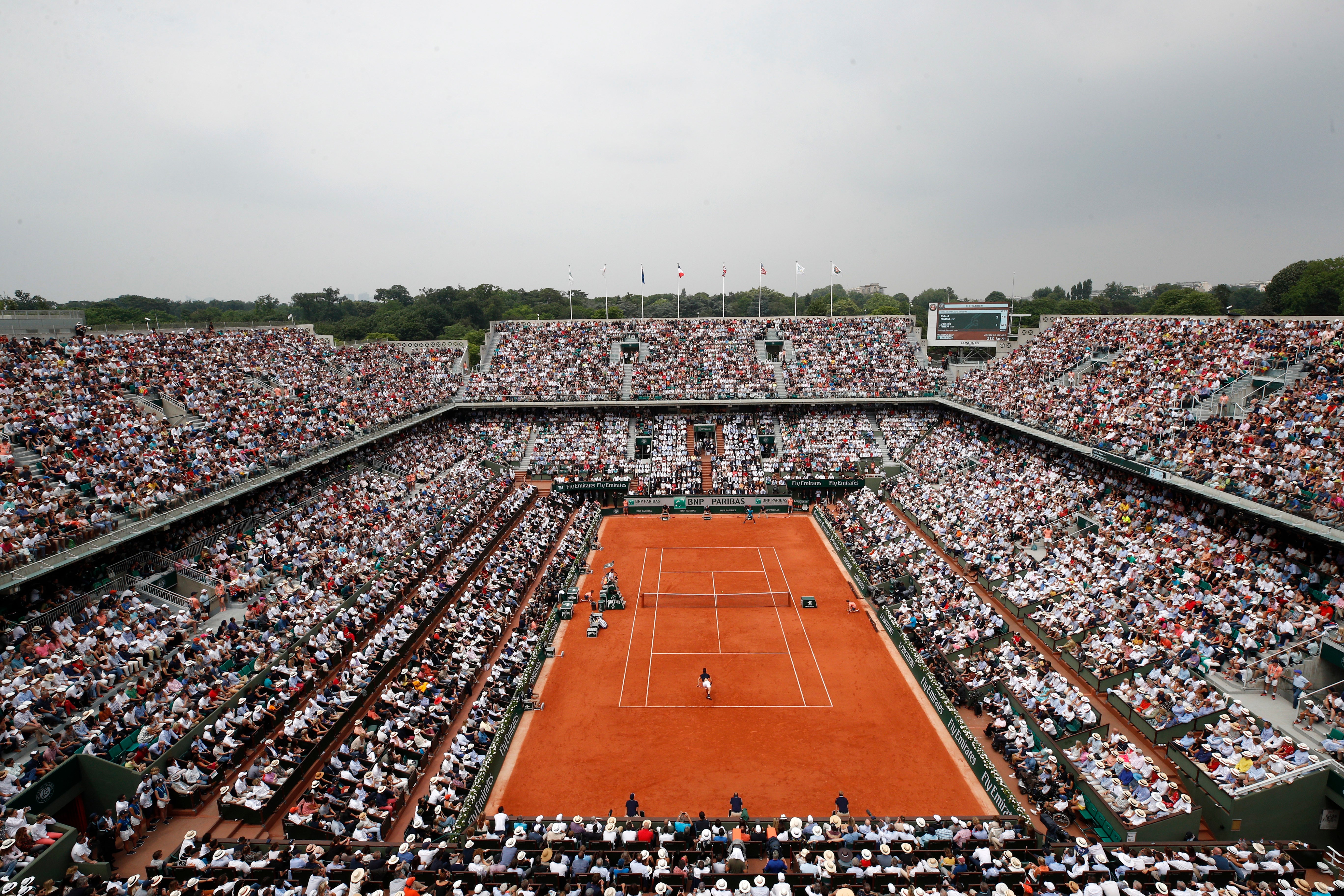French Open 2020: 11,500 fans to be allowed into Roland Garros each day, organisers announce
Fans will be limited to the three show courts and will not be allowed to switch between them, with 5,000 set to be present on the Philippe Chatrier centre court

Your support helps us to tell the story
From reproductive rights to climate change to Big Tech, The Independent is on the ground when the story is developing. Whether it's investigating the financials of Elon Musk's pro-Trump PAC or producing our latest documentary, 'The A Word', which shines a light on the American women fighting for reproductive rights, we know how important it is to parse out the facts from the messaging.
At such a critical moment in US history, we need reporters on the ground. Your donation allows us to keep sending journalists to speak to both sides of the story.
The Independent is trusted by Americans across the entire political spectrum. And unlike many other quality news outlets, we choose not to lock Americans out of our reporting and analysis with paywalls. We believe quality journalism should be available to everyone, paid for by those who can afford it.
Your support makes all the difference.A limited number of fans will be allowed to attend the French Open later this month under strict conditions, the French Tennis Federation has announced.
The tournament at Roland Garros was rescheduled from the spring because of the coronavirus pandemic, and organisers had originally hoped to have up to 60 per cent of the usual capacity.
But France is experiencing a resurgence in Covid-19 infections and the FFT revealed on Monday that only 11,500 spectators a day will be permitted, split into three different zones.
The zones including the centre court, Philippe Chatrier, and the second court, Suzanne Lenglen, will both have a maximum of 5,000 fans, while 1,500 spectators will be allowed into the third court, Simonne Mathieu. Qualifying will be played behind closed doors.
No movement between the zones will be allowed, while empty seats will be left between household groups and masks must be worn at all times.
Conditions for the players are even more stringent than at the current US Open, which is being played without spectators.
They must stay in one of two tournament hotels - players in New York had the choice of staying in private accommodation - while they will only be allowed on site at Roland Garros on the days when they are playing matches.
Jean-Francois Vilotte, the director general of the FFT, said on rolandgarros.com: "The FFT has a responsibility to protect the health of anyone involved in the tournament.
"It has a responsibility to international tennis to organise this major tournament and it also has a responsibility to society. What we want people to see is that it is possible to enjoy sport, socialise and interact with other people while respecting strict health and hygiene guidelines.
"We want our tournament to be truly remarkable and to set an example, from all angles. By setting an example with our tournament, we hope to prove that we can get the economy back on track; though it goes without saying that certain conditions and certain restrictions must be respected."
This is a big year for Roland Garros, with the new roof over Philippe Chatrier in use for the first time, while 12 courts have been equipped with floodlights.
In recognition of the difficult times for lower-ranked players, the FFT also announced an increase in prize money for players who lose in qualifying and the first round compared to 2019.
The tournament will begin on 27 September and virtually all of the world's best players are due to play in Paris.
The decisions to restrict players to two hotels and allow fans into the grounds are unlikely to be popular, particular with the big names, and Serena Williams stopped short of confirming she would definitely take part.
The 38-year-old chose to stay in a private house for the US Open because of her history of lung problems and concerns over Covid-19.
She said: "If there are fans, then we should be able to stay elsewhere.
"It's just for me I'm super conservative because I do have some serious health issues, so I try to stay away from public places, because I have been in a really bad position in the hospital a few times. So I don't want to end up in that position again.
"I'm going to have to make the best decision for my health. Maybe it will be good for me to talk to the organisers just to see how that works with the crowd and how we will be protected.
"So I think they have to make the best decision for them, and I have to do what's best for me. But I think it should be OK. I think there is a lot of factors that hopefully they are thinking about, and I'm sure that they are, as this is a global pandemic."
PA



Join our commenting forum
Join thought-provoking conversations, follow other Independent readers and see their replies
Comments